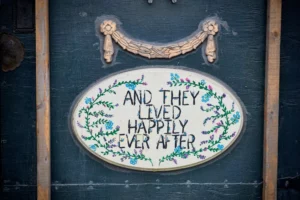I moved to Colorado Springs from my little hometown in Iowa
when I was 23. In some ways, that season was the best of times … and the worst
of times.
On the “best of times” side of the ledger, God had opened a
door for me to serve in a really interesting support role to several executives
in the international office of The Navigators. I’d diligently raised financial support
for about eight months, and when I moved out, I had just enough income trickling in
to almost make my meager ends meet. The
job proved to be fascinating and deeply formative as I rubbed shoulders daily
with some of the most godly, gifted and focused people I’ve ever known.
On the “worst of times” side of the equation, however, I
moved to “the Springs” (as it’s colloquially known) without knowing a single
person here. I rented a studio apartment in a decidedly low rent complex, and
it took me all of about an hour to unload my belongings the day I moved in. They
consisted of some clothes, some books, some CDs, some dishes and my lone piece
of “furniture”: a bean bag chair.
As excited as I was to start my new job, I still remember
the first month or so of coming home after work, sitting in my bean bag chair,
staring at the wall, listening to my neighbors fight through the wall and
wondering when my glorious post-college life was really going to begin. Eventually, I landed at a local church and
began to make new friends, but it was anything but instantaneous. At times, my
lowly apartment and even lowlier support system and financial situation left me
hovering on the brink of deep discouragement.
These days, according to a new study examining 18- to
29-year-olds entering this “emerging adulthood” season, the majority of folks
in this demographic feel something similar, namely that the perks of genuine “adulthood”
are still somewhere in the future.
Jeffrey Jensen Arnett, a psychology professor at Clark
University, has been studying the young adult phase of development for 20
years. He recently surveyed 1,029 folks between the ages of 18 and 29, asking, “Do
you feel that you have reached adulthood?” In response, 48.6 percent said yes, 4.6 percent
said no, while the remaining 46.8 percent split the difference, choosing the answer, “In
some ways yes, in some ways no.” Alana Prant, who’s 23, represents the 47 percent of
those who still get some or a lot of financial help from their parents when she
says, “I’m about to be 24. I should feel like an adult, but I don’t. My parents
completely support me.”
Those surveyed were also asked what the most important
element defining adulthood was. Thirty-six percent said, “Accepting
responsibility for yourself”; 30 percent said, “Becoming financially independent”; 16 percent
said, “Finishing education”; 14 percent said “Making independent decisions.” Just 4 percent
said that they felt getting married was the most important aspect in becoming
an adult.
It was this last statistic that caught my attention the most. A generation
(or perhaps two) ago, adulthood was largely defined by the intertwined events
of completing college and, more or less simultaneously, getting married. These
days, however, the emerging generation’s understanding of what constitutes
adulthood has shifted, and marriage barely even makes the list. For many, it
would seem, it’s just a distant blip on the horizon.
Indeed, Arnett told USA
Today that virtually every major milestone on the road to adulthood is
happening later these days, whether it’s getting established in a career,
getting married or having children. “None of those [trends] are going away in
our lifetime,” he said.
In some ways, my own experience split the difference when it
comes to these trends. By God’s grace, I had significant career opportunities
open up early in my 20s. On the other hand, I didn’t get married until I was 34
(though it wasn’t for a lack of trying), and my wife and I didn’t have our
first child until we were both 36. If you’d polled me when I was 23 regarding
whether I felt like an adult yet, I’m not sure what I would have said. Maybe
yes. Maybe no. Maybe somewhere in between.
How about you? What has your process of “emerging adulthood”
been like? Do you feel like a “grown-up” yet? Whether your answer is yes, no or
maybe, what would you say are the markers that best define for you what it
really means to be an adult?










